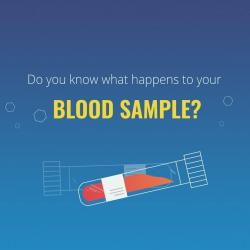At Home
More and more tests are being adapted for use at home, as patients take on responsibility for their health care. Some of the more common home tests include pregnancy tests and ovulation predictors for women, blood glucose monitors for diabetics and prothrombin-time tests to monitor the doses of drugs that thin the blood.
Home tests are available directly over the counter at pharmacies, over the Internet, by telephone and by mail. Some may require a doctor’s prescription. Home tests offer definite advantages, including convenience, privacy and rapid results. However, there are a number of potential pitfalls, and consumers should think carefully before ordering home tests. For example, results can be inaccurate if the kit has not been stored properly, if the sample was not collected correctly or if the instructions were not followed. In addition, professional advice to understand the significance of a particular result may be required, and it is advisable to discuss home tests with your doctor or pharmacist before carrying them out.
Under European Union legislation (the In Vitro Devices Directive), all home diagnostic tests require a CE mark to be sold legally in the UK, and some tests for specific applications (e.g. self-test devices for blood glucose analysis) require special certification from the Medicines and Healthcare Regulatory Agency





